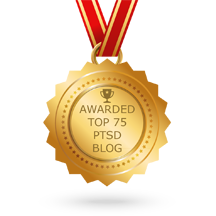Here, we really try to stick to our only trauma information mantra. Yet, we'll break that this time to cover a lot of things hopefully in a helpful way.
We all know that Julian Assange's bail hearing is set for today. Sweden wants to extradite him for alleged rape and molestation charges. In Virginia, a grand jury is secretly working to see if there are charges to extradite him on.
Having said that all that, while we support the basic idea of Wikileaks, frankly we're sick of hearing hearing 24/7 global hype about what a babe magnet Assange is. Do we really need to know endless graphich details of his sex life? Do we really need to see his online dating profile? That's why we're staying away from this as much as possible.
Instead, we're concentrating on our online security. Here are some ideas that might help. These haven't been endlessly recycled from the MSM "expert Top 10 lists".
Anonymous is saying they're behind a lot of these hacks. Don't freak out and think that the world's coming to an end. It's not. Part of this is of course MSM hype to sell papers and fill airtime.
If someone wants to hack you, a key is to out think them to block the steps that they try. It doesn't matter if you have Windows 7, XP or you're using a Mac. Make a list of what someone could try to do to get control of your PC. Then, a counterpoint to block them.
The obvious one? Update your passwords. Most passwords for sites go up to about a 12 to 15 character limit (sometimes longer). Don't use a really basic one. Make it as creative and long as possible. If the hacker really wants your information, make them work for it.
Assange says his "Doomsday" file has a 256-key encription. Basically, that's the level of protection that governments and corporations use. Do you need that for your home use? Maybe not. Then again, just make it as hard as possible for the hacker.
Sites like My Space and Craig's List are notorious for rubbish content filled with phish links (to get your personal information). Our suggestion? Stay away from them.
Many hackers will steal legitimate content, sites and more to try and scam you. Look for any tiny mistake you can if you think it's a fake site. Check out any information that you think is being used to phish you.
Now, the most important point. Can anything be hacked? Yes. It's a matter of time, code writing skill and how big your ego is. Instead of getting caught up in the Wikileaks-Assange-How-Hot-is-He-in-Bed-Hype, turn that off and update your passwords to protect your content.
Keep your balance and your content.
Subscribe to:
Post Comments (Atom)





No comments:
Post a Comment